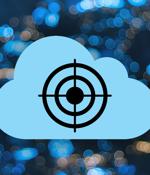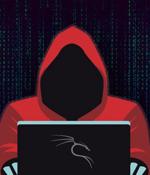Security News

Malicious Android apps found masquerading as legitimate antivirus tools. In a report released Thursday, the cyber threat intelligence provider detailed its discovery of six apps in Google Play that appeared to be antivirus software but actually tried to install malware capable of stealing credentials and financial data.

Email marketing firm MailChimp disclosed on Sunday that they had been hit by hackers who gained access to internal customer support and account management tools to steal audience data and conduct phishing attacks. In an email to BleepingComputer, MailChimp has confirmed that the breach was more significant than just Trezor's account being accessed by threat actors.

I have a shortlist of five types of tools your admins must know to keep tabs on your desktops, servers and networks. Pentesting tools are an absolute must for gauging the security of your systems.

This type of an environment is generally built to run risky files and determine whether those files represent a malware threat. Modern sandboxes allow companies or individuals to check any kind of files, including Microsoft Office files, PDF files and any executable file.

Orca Security released a research report on public cloud security alert fatigue. "Multiple, disconnected tools continue to plague security teams. Having to sift through hundreds of 'high priority' often meaningless alerts is causing security practitioners to become overwhelmed and leading to burnout and turnover, exacerbating cybersecurity staff shortages," said Avi Shua, CEO, Orca Security.

As much as threat mitigation is to a degree a specialist task involving cybersecurity experts, the day to day of threat mitigation often still comes down to systems administrators. In this article, we outline the difficulties implied by enterprise threat mitigation, and explain why automated, purpose-built mitigation tools are the way forward.

A Russian-speaking ransomware outfit likely targeted an unnamed entity in the gambling and gaming sector in Europe and Central America by repurposing custom tools developed by other APT groups like Iran's MuddyWater, new research has found. The unusual attack chain involved the abuse of stolen credentials to gain unauthorized access to the victim network, ultimately leading to the deployment of Cobalt Strike payloads on compromised assets, said Felipe Duarte and Ido Naor, researchers at Israeli incident response firm Security Joes, in a report published last week.

The U.S. Cybersecurity and Infrastructure Security Agency on Friday published a repository of free tools and services to enable organizations to mitigate, detect, and respond effectively to malicious attacks and further improve their security posture. The "Free Cybersecurity Services and Tools" resource hub comprises a mix of services provided by CISA, open-source utilities, and other implements offered by private and public sector organizations across the cybersecurity community.

The U.S. Cybersecurity and Infrastructure Security Agency has published a list of free cybersecurity services and tools to help organizations increase their security capabilities and better defend against cyberattacks. While the set is neither comprehensive nor impervious to change, it aims to mature an entity's cybersecurity risk management when combined with baseline security practices for a strong cybersecurity program.

Cyber threat intelligence is a concept that is crucial to the security of corporate networks, yet it can be difficult to really understand the ideas behind it, not to mention the implementation of threat intelligence within the company's IT and security structures. Before diving into what cyber threat intelligence is, it is essential to understand what the word "Threat" defines.